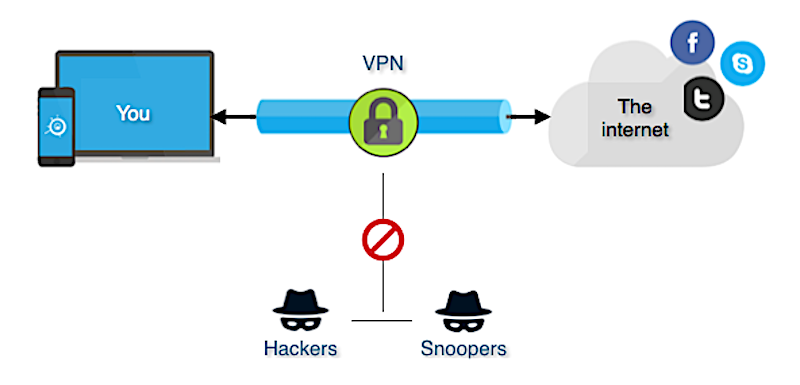The Benefits of Virtual Private Networks (VPNs) for Business Security
In today’s digital landscape, safeguarding business data and ensuring secure communications are critical for maintaining operational integrity and protecting sensitive information. Virtual Private Networks (VPNs) offer a robust solution for enhancing business security by providing secure remote access, protecting data in transit, and mitigating various cybersecurity risks. This blog post explores the key benefits of VPNs for business security and how they can bolster your organization’s defense against cyber threats.
1. Enhanced Data Protection
VPNs play a crucial role in protecting sensitive business data by encrypting the information transmitted over the network. This encryption ensures that data remains confidential and secure from unauthorized access. Key aspects include:
1.1 Data Encryption
VPNs use encryption protocols to encode data, making it unreadable to anyone who intercepts it. This encryption safeguards sensitive information such as financial data, customer details, and proprietary business data from cybercriminals and eavesdroppers.

1.2 Secure Communication Channels
By encrypting data transmitted between remote devices and the corporate network, VPNs ensure that communications remain private and secure. This is particularly important for businesses that handle confidential information or operate in regulated industries.
2. Secure Remote Access
As remote work becomes increasingly common, providing secure access to company resources for remote employees is essential. VPNs offer several advantages for secure remote access:
2.1 Access Control
VPNs allow businesses to control and monitor remote access to their networks. Administrators can set up access controls and permissions to ensure that only authorized users can connect to the network and access specific resources.
2.2 Remote Connectivity
With a VPN, employees can securely connect to the corporate network from any location with an internet connection. This flexibility enables remote work and collaboration while maintaining the security of company data and resources.
3. Protection Against Cyber Threats
VPNs provide protection against various cyber threats and attacks, enhancing overall network security. Key protective features include:
3.1 IP Address Masking
VPNs mask users’ IP addresses, making it difficult for cybercriminals to track their online activities or target them with attacks. By concealing IP addresses, VPNs add an additional layer of anonymity and privacy.
3.2 Mitigation of Man-in-the-Middle Attacks
VPNs protect against man-in-the-middle attacks by encrypting data transmitted between devices and the network. This encryption prevents attackers from intercepting and manipulating communications.
4. Improved Network Privacy
VPNs enhance network privacy by preventing third parties, such as Internet Service Providers (ISPs) and advertisers, from monitoring or tracking online activities. Key privacy benefits include:
4.1 Browsing Privacy
VPNs prevent ISPs and other entities from monitoring users’ online browsing activities. This privacy protection ensures that sensitive business activities and communications remain confidential.
4.2 Anonymity
By routing internet traffic through secure VPN servers, businesses and their employees can maintain anonymity online. This helps protect against potential privacy breaches and unwanted surveillance.
5. Compliance and Regulatory Adherence
For businesses operating in regulated industries, VPNs can assist in meeting compliance and regulatory requirements. Key compliance benefits include:
5.1 Data Protection Regulations
VPNs help businesses comply with data protection regulations by ensuring that sensitive information is encrypted and secure. This is particularly important for industries subject to regulations such as GDPR, HIPAA, and PCI DSS.
5.2 Secure Data Transfers
VPNs enable secure data transfers between the business network and external partners, clients, or vendors. This secure transfer of data helps meet compliance requirements for protecting sensitive information.
6. Cost-Effective Security Solution
Implementing a VPN is a cost-effective way to enhance business security compared to other security solutions. Key cost benefits include:
6.1 Reduced Need for Expensive Security Infrastructure
VPNs provide robust security without the need for expensive hardware or infrastructure. This makes them an affordable option for businesses of all sizes.
6.2 Lower Risk of Data Breaches
By protecting sensitive data and securing remote access, VPNs reduce the risk of data breaches and associated costs. This proactive security measure helps prevent costly incidents and potential legal liabilities.
Conclusion
Virtual Private Networks (VPNs) offer numerous benefits for enhancing business security, including data protection, secure remote access, and protection against cyber threats. By encrypting data, masking IP addresses, and providing secure connectivity, VPNs play a vital role in safeguarding sensitive information and ensuring the privacy and integrity of business communications. For organizations seeking a cost-effective and robust security solution, VPNs provide a valuable tool for maintaining a secure and compliant network environment.



